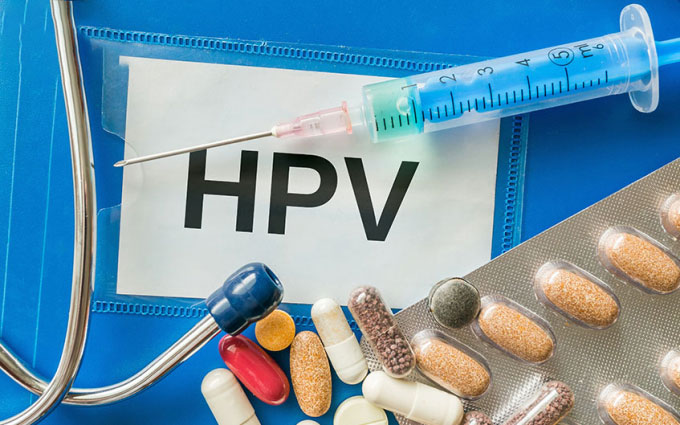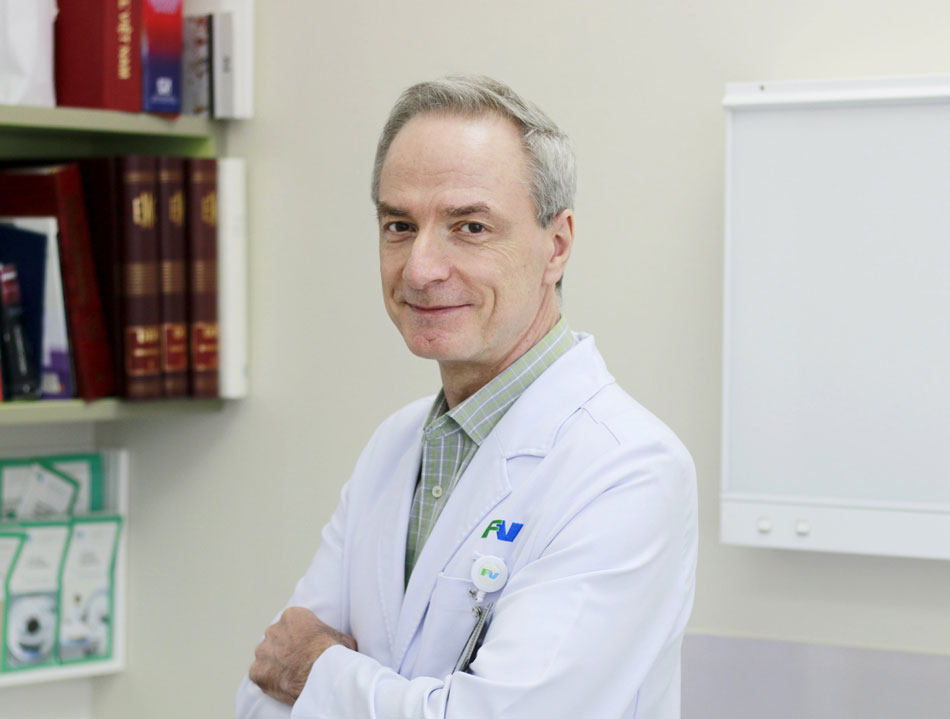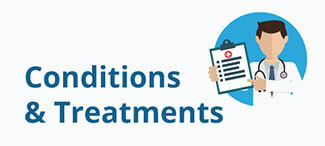Dr Guillaume Orieux, Head of the Dermatology Department of FV Hospital, recommends that patients with sexually transmitted diseases (STDs) and their partners need to be fully screened and receive comprehensive treatment to avoid risk of reinfection.
“I thought I had engaged in safe sex, but still contracted gonorrhoea”
A 20-year-old man from Ho Chi Minh City was experiencing painful urination, penile pain and a discharge of pus from his penis for three days. He went to the Dermatology Department, FV Hospital, for an examination and to be tested for gonorrhoea. Talking to the doctor, he confirmed that he had only had intercourse with one person in the past month, using a condom.

Dr Orieux examines and advises patients about STDs
The patient presented with urethritis, purulent urethral discharge, painful urination and urethral fluid that was positive for gonorrhoea bacteria. The infection might have been caused because the patient’s sexual partner had gonorrhoea in their throat which was transmitted to during oral sex.
Unprotected sex is one of the main ways that sexually transmitted diseases can be transmitted. Common sexually transmitted diseases include syphilis, herpes, gonorrhoea, chlamydia, HIV and HPV. The World Health Organization (WHO) estimates that each year globally there are about 374 million new infections of the following sexually transmitted diseases: chlamydia, gonorrhoea, syphilis and trichomoniasis. An estimated 500 million people aged 15–49 years have genital herpes simplex virus (HSV).
HPV infection is the cause of many STDs
People who engage in sex at a young age without protection or only use condoms when ejaculating increase their risk of contracting sexually transmitted infections (STIs). HPV infection is one of the most commonly detected STIs during STD screening at FV Hospital. If untreated, some high-risk types of papillomaviruses such as HPV 16 and 18 can develop into genital or anal cancers. HPV infection is associated with more than 311,000 cervical cancer deaths each year.

Comprehensive screening, treatment and the use of protection is necessary to avoid reinfection
To prevent and promptly treat STDs, in addition to practicing safe sex, people need to visit their doctor when they have symptoms such as sores or lumps in the genital area, abdominal pain, urethral discharge or discoloured, unpleasant smelling vaginal discharge. In some cases, it is impossible to identify the disease with the naked eye so it is mandatory to perform skin, tissue and blood tests to screen for all sexually transmitted diseases. Women should receive regular gynaecological examinations at least once a year, even if they are symptom-free. Couples should have a health check-up before engaging in unprotected sex to identify any issues.

Dr Guillaume Orieux, Head of Dermatology, FV Hospital advises patients to be screened for STDs
FV Hospital’s Dermatology Department provides treatment according to international standards and many patients who make an appointment to see a doctor with a suspicious symptom, after screening, are diagnosed with other STDs. In one case, a patient visited the hospital to receive treatment for warts around the anus and, after being screened for STDs, was diagnosed as HIV positive.
When patients come for an STD panel at FV Hospital, Dr Orieux always advises they coordinate examination and screening for their sexual partners so that both can be treated simultaneously to avoid passing any infections present back and forth.
Over the years, FV Hospital’s STD screening package has enabled many patients to access specialist treatment. FV Hospital ensures all information is kept secure and patients are treated using modern equipment according to the latest, most comprehensive therapies by a team of dedicated, experienced doctors.
Dr Guillaume Orieux recommends that partners are honest with each other about their sexual practices and engage in safe sex as an effective way to prevent STDs. Women between the ages of 9–26, whether sexually active or not, should get the HPV vaccine to prevent cervical cancer. The HPV vaccine is effective for up to 30 years.
Please call (028) 54 11 33 33 to register for STD screening at FV.



